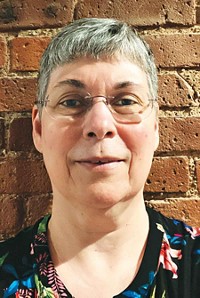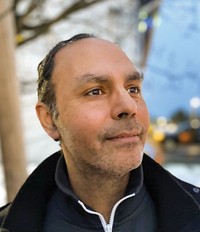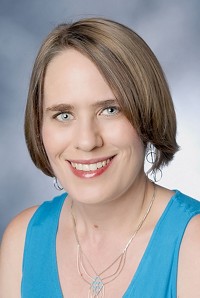Advertisement
Grab your lab coat. Let's get started
Welcome!
Welcome!
Create an account below to get 6 C&EN articles per month, receive newsletters and more - all free.
It seems this is your first time logging in online. Please enter the following information to continue.
As an ACS member you automatically get access to this site. All we need is few more details to create your reading experience.
Not you? Sign in with a different account.
Not you? Sign in with a different account.
ERROR 1
ERROR 1
ERROR 2
ERROR 2
ERROR 2
ERROR 2
ERROR 2
Password and Confirm password must match.
If you have an ACS member number, please enter it here so we can link this account to your membership. (optional)
ERROR 2
ACS values your privacy. By submitting your information, you are gaining access to C&EN and subscribing to our weekly newsletter. We use the information you provide to make your reading experience better, and we will never sell your data to third party members.
Careers
Catalyzing increased awareness about ethics
by Keith Vitense, Chair, ACS Committee on Ethics
November 13, 2017
| A version of this story appeared in
Volume 95, Issue 45
We live in interesting times, and it can be easy to become discouraged with the public discourse when it seems that as a country we are more divided than ever. But once in a while, something wonderful happens that reinvigorates us.
For me that something wonderful was attending the awards banquet last month at the 2017 Southwest Regional Meeting in Lubbock, Texas. After teaching my last class of the day at Cameron University, I made the four-hour drive to attend the awards banquet, as well as the final poster session of the meeting. I was encouraged to see the research being done not only at the larger universities but also at the smaller universities and community colleges. Science is alive and well in the Southwest.
Another highlight of the evening was seeing the Stanley C. Israel Regional Award for Advancing Diversity in the Chemical Sciences being presented to Xavier University of Louisiana. Xavier is consistently ranked in the top 50 universities awarding degrees in chemistry in the U.S. Also, this relatively small school has been first in the nation for the past 10 years for producing African American graduates earning undergraduate degrees in chemistry. The work they do is nothing short of fantastic, and the award was well deserved.
As encouraged as I was by the science that was presented, I recognize that there is still work to do to promote science. It seems that science continues to be under attack. I remember a talk show from over 30 years ago in which the panelists mentioned that people should never eat anything that they can’t pronounce. For me, this meant that I could no longer eat many of my favorite Italian dishes. That statement was an oversimplification of a legitimate concern that we should be more aware of what we ingest, but I believe that this was not the message that the majority of viewers received.
One of the main goals of the committee is to catalyze ethics education within the scientific community.
The explosion of pseudoscience can be partly blamed on the ease in which we communicate with others today. Many people from my generation are thankful that social media didn’t exist when we were growing up because relatively few people knew about the immature things we used to do. Social media allows anyone to have a voice, and it is often challenging to separate the legitimate science from the pseudoscience.
What does this have to do with the ACS Committee on Ethics? One of the main goals of the committee is to catalyze ethics education within the scientific community, and we are continuing to come up with ideas to advance this goal. From symposia at national meetings to publications designed for undergraduate students in science, technology, engineering, and mathematics (STEM) fields, we are trying to make people more aware of ethics’ importance in the chemical sciences. We are also trying to raise the visibility of local programming related to ethics with our first ChemLuminary Award to be presented to a local section in 2018 for programming related to ethics during 2017. In addition, we continue to champion diversity and inclusion, as ethics also includes the ethical treatment of people.
The work of the committee continues. We are planning symposia for several of the upcoming national meetings. We are also trying to reinvigorate our programming at regional meetings, which is where many on the committee believe we can have the greatest impact. We have also begun preliminary discussions with the American Association of Chemistry Teachers to help adapt some of our materials or possibly develop new materials for use in primary and secondary school classrooms. We continue to reach out to other groups, such as the Committee on Chemical Safety, to advance common interests.
We have strong ties to several divisions, including the Division of Professional Relations and the Division of Chemical Information, both of which have been sponsors of our programming. But we are always looking for more partners, at both the committee and division levels. As the challenges to the ethical conduct of science (and more specifically chemistry) change, the relationships of the committee will continue to evolve.
The committee itself is also evolving. This year, we expanded the membership of the committee from nine to 12 members. Also, on Jan. 1, 2018, for the first time since the committee was formed, the chair of the committee will not be one of the original members or associates. This is a milestone in the growth of the committee, and I think it indicates that we are continuing down the path that was envisioned for the committee when it was formed almost 12 years ago. As the last of the original members and associates of this committee, I am certain of a couple of things: The committee will continue to find new ways to help us remember how important ethics is to the practice of science, and the committee will continue to be relevant to the members of the American Chemical Society.
Views expressed are those of the author and not necessarily those of C&EN or ACS.






Join the conversation
Contact the reporter
Submit a Letter to the Editor for publication
Engage with us on Twitter